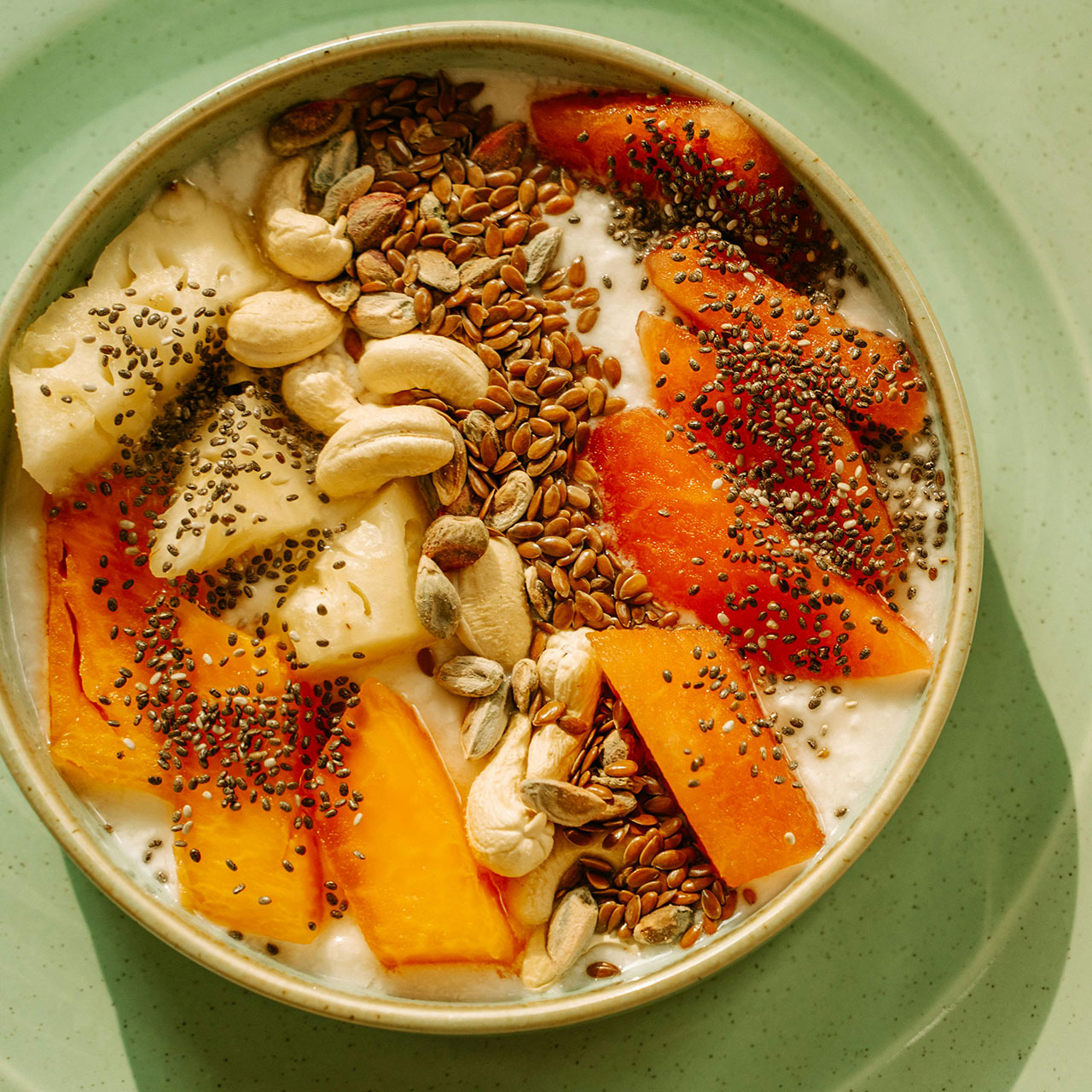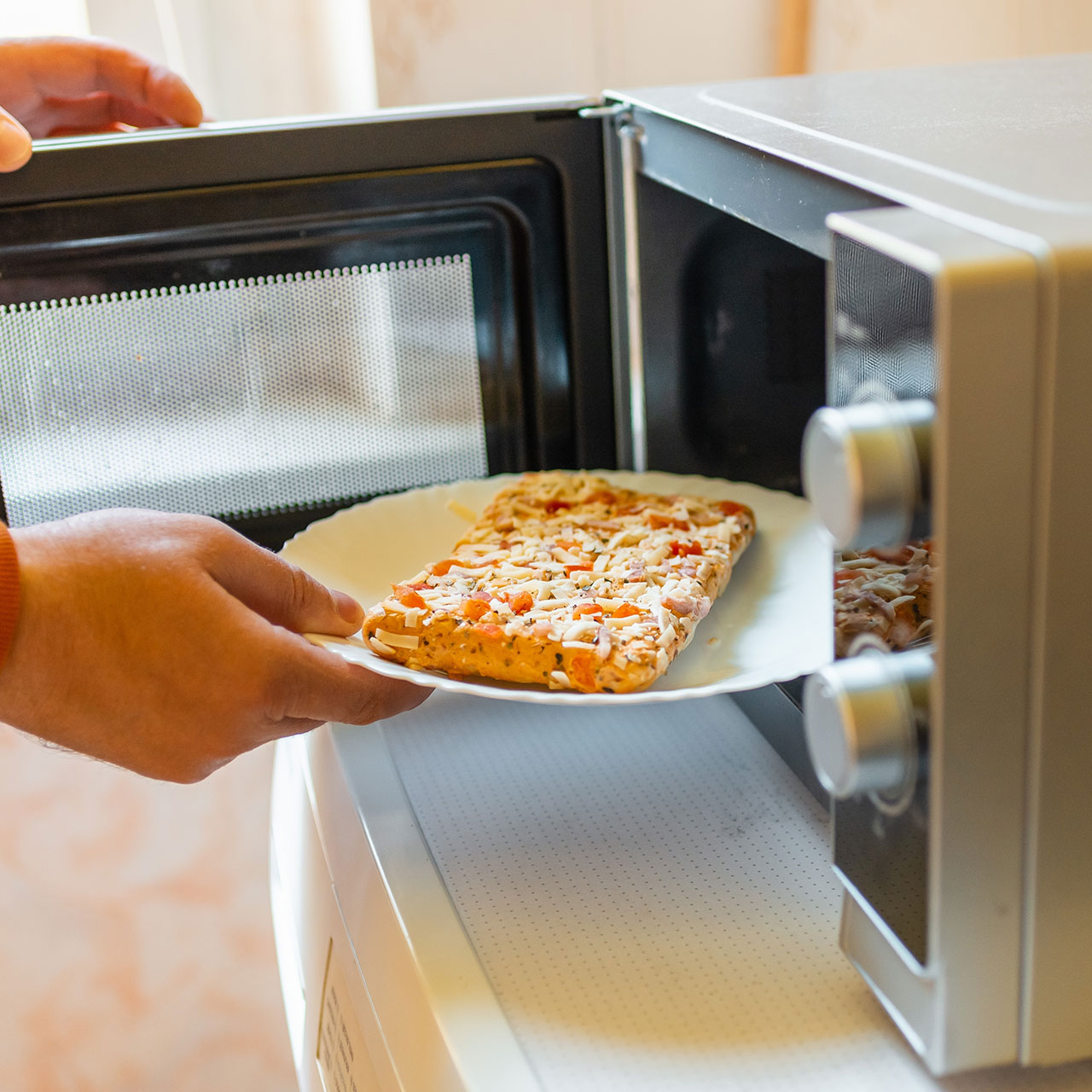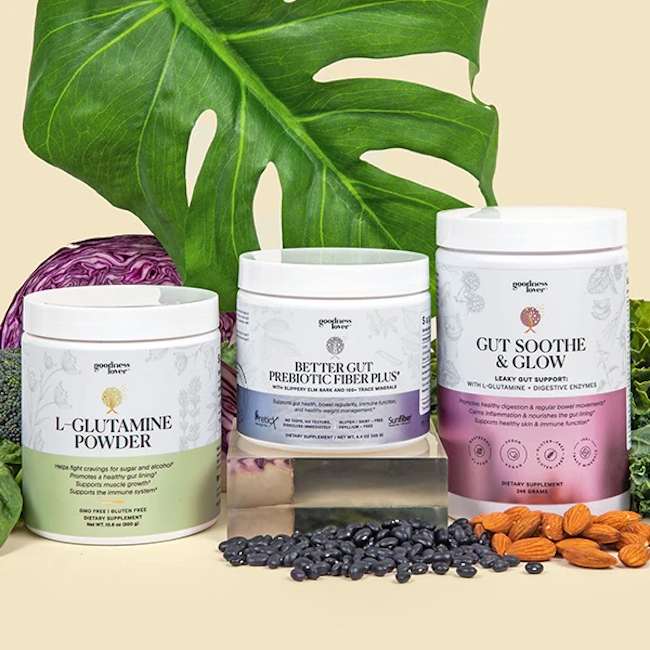If you have a sensitive gut, you know that there are so many foods that can trigger digestive issues like gas, bloating, diarrhea, and more. We probably don’t have to tell you twice that staying away from items like refined sugar and processed foods if you want to improve your gut health—but, you may not be paying attention to the beverages you drink. As it turns out, certain drinks can be harmful to your gut health—especially when it comes to the high-sugar varieties.
To learn more about the sugary drinks that can cause bloating and digestive issues, we spoke with Paula Doebrich, a registered dietitian and founder of Happea Nutrition, Nataly Komova, a registered dietitian and fitness expert, Trista Best, a registered dietitian at Balance One Supplements, and Dana Hunnes, a registered dietitian and author of Recipe For Survival. They said that sodas and frozen coffees are often loaded with sugary, high-calorie ingredients, and sipping on these beverages every day could ruin your gut health and lead to bloating and digestive issues. Read on to learn more!
READ MORE: Experts Say You Should Stop Drinking This Sugary Beverage ASAP If You Care About Your Gut Health

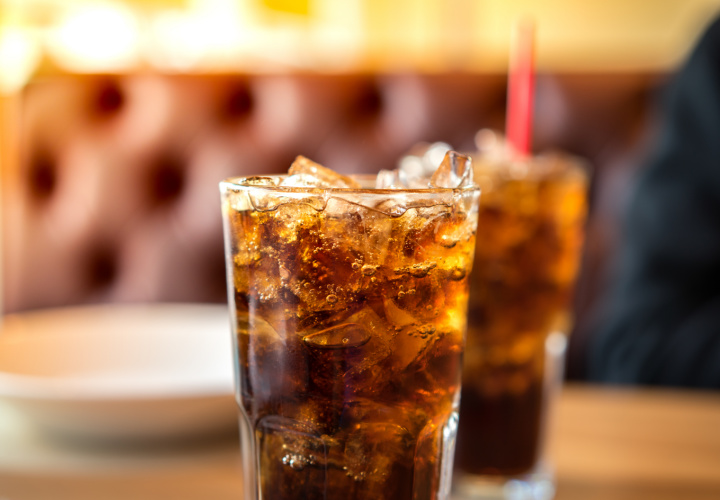
1. Soda
If you're feeling bloated or experiencing other symptoms of indigestion, you may find temporary relief from sipping a carbonated beverage like soda, but experts agree that this may be doing more harm to your gut than good. This carbonated beverage can negatively affect your gut because of its high sugar content which is a major culprit of inflammation, digestive issues, and weight gain. And, while you may believe that diet soda is the healthier option, that's not necessarily the case.
Doebrich says that "one suspected outcome of drinking excessive amounts of diet soda are changes in the gut microbiome, which have negative health outcomes," because the excessive artificial sweeteners may be just as detrimental to your gut health as plain old sugar—especially if you're sensitive to them. "For some people, who are sensitive to the sweeteners used, [diet soda] may cause gastrointestinal discomfort," she warns.
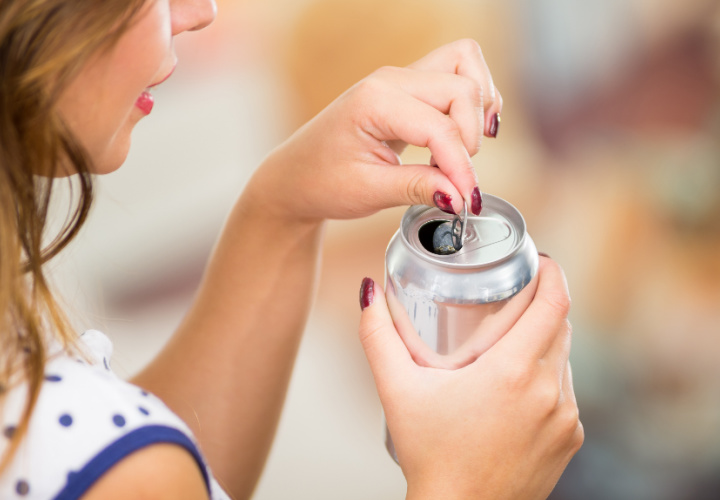
And, the carbonation in soda can only make bloating worse. "Keep in mind that drinking a lot of carbonated beverages may also cause gastrointestinal discomfort, independent of the sweeteners,” Doebrich says. Carbonated beverages contribute to bloating by trapping gas in the intestines. Komova agrees that soda is one of the most inflammatory drinks because it can "cause insulin resistance and raise cholesterol levels, slowing weight reduction."
Instead of high-sugar soda, Hunnes says that water is the best way to fight inflammation, but if you're still craving that fizzy bust, she suggests opting for kombucha instead. This is because kombucha is a probiotic-rich, anti-inflammatory carbonated beverage. "The probiotics and the antioxidants [in kombucha] are anti-inflammatory and can aid in promoting GI health by helping to colonize the GI tract with healthy bacteria," she explains. Yum!
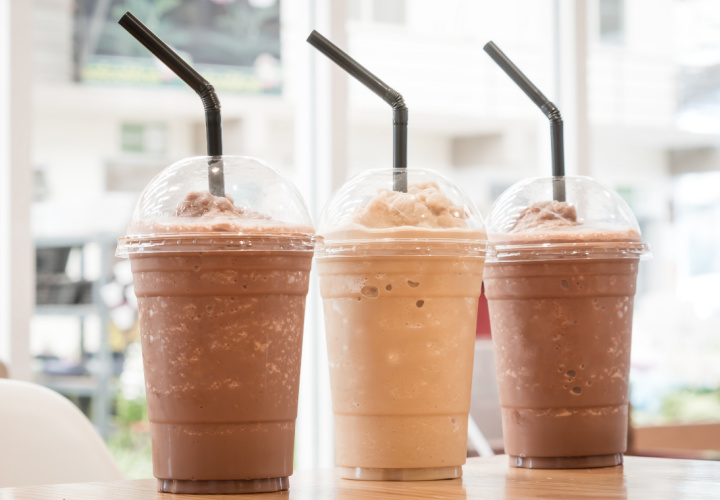
2. Frozen Coffee
Another high-sugar drink that can cause indigestion and bloating discomfort is frozen coffees (like Starbucks Frappuccinos!). Even though these drinks are absolutely delicious, they are, as you'd expect, loaded with refined sugar and full-fat dairy creamers that are terrible for your gut health and will eventually lead to weight gain.
"Unfortunately, for those wanting to lose weight, these coffee habits might be stalling their efforts," Best adds. Drinking frozen coffees daily can be harmful to weight loss goals, "especially for those that consume more than 1 cup a day," she continues. This sugary drink can also cause inflammation issues—which can only exacerbate weight loss even more.
"Taking a cup of frozen coffee with creams and lattes, especially from coffee shops, can significantly slow down metabolism and trigger weight gain," Komova says. While black coffee is generally low in calories (and considered the best way to drink coffee), frozen coffees are loaded with calories from syrups, creams, whipped cream, and more. All of these sugary ingredients add up.
"Frozen coffee is high in sugars and calories, ranging from 400 to 1200," she notes. "When you consume all of these calories as soon as you wake up, you're starting your body off on the wrong track for the rest of the day." And, Komova warns that the refined sugar and full dairy in frozen coffee can "slow down digestion and metabolism while stripping you any natural effort of the body to cut weight."
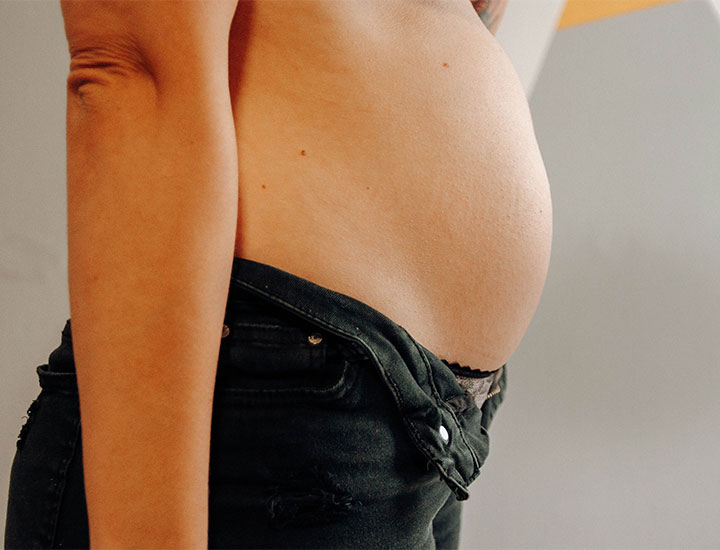
Best says that instead of drinking frozen coffees, you should "opt for natural sweeteners [or] plant-based creamers." Even though plant-based creamers are generally anti-inflammatory and beneficial for gut health, some are still high in refined sugars. So, it's "important to still pay attention to the nutrition label."
"Consider using honey or cinnamon to flavor your coffee rather than refined sugars. These two ingredients are natural, [and] anti-inflammatory, and cinnamon can help to boost metabolism and stabilize blood sugar," she adds. All of which, she says, can improve "weight loss efforts and reduce bloating."
The Bottom Line
At the end of the day, the most important thing for your gut health is to pay attention to what your body needs—and doesn't need. Health experts agree that soda and frozen coffee are high-sugar drinks that guarantee bloating and inflammation. Instead, try healthy alternatives like probiotic-rich kombucha and plain black coffee (or coffee with plant-based creamers and natural sweeteners) to kick your digestive issues to the curb.















